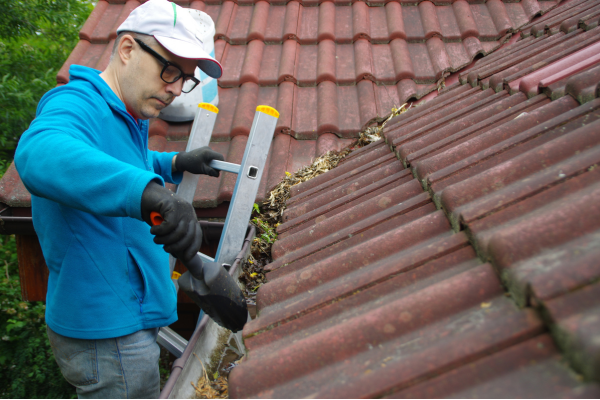Top 10 ways landlords can avoid making an insurance claim

Having insurance is a sensible way to protect yourself as a landlord against the financial cost of damage or liability claims, but it’s just as important to do everything you can to avoid having to make a claim in the first place.
While insurance can save you money, making repairs and even the claims process itself can be time consuming, not to mention cause disruption to both your and your tenants’ lives.
So here are 10 things you can do to help reduce the chance of having to make a claim on your landlord insurance:

- Maintain the property well
The better condition the fabric of your property is in, the less liable it will be to damage. The occasional storm is inevitable, but if your guttering is properly secured, the drains are clear, the roof tiles are all in place and the brickwork and pointing are in good condition, the property should stand up well against the elements.
- Go over and above with fire safety measures
Fire can be devastating so, even if it’s not required by law, renew your fire safety risk assessment every 1-2 years, have a multi-purpose fire extinguisher on every floor and put a fire safety blanket in the kitchen. While fire doors are only mandatory in HMOs, it’s worth considering fitting them in single let properties, and mains-powered smoke alarms are more reliable than battery-powered ones.
- Have recommended gas and electrical work carried out
When gas and electrical engineers carry out their inspections and tests for certification, they will sometimes make recommendations for work to be done. Even if it’s not essential to secure the certificate, it’s worth getting the work carried out, to give you – and your tenant – peace of mind that the gas system and electrical installation are in the best possible condition.
- Deter intruders by ensuring the property is secure
To minimise the risk of theft and vandalism, make sure the boundary fencing is strong and there are good locks on all the doors and windows. Fit motion-activated security lights at the front and back of the property and cut back any shrubs that are near the house and could provide cover for an intruder.
- Ensure your tenant knows what to do in an emergency
When your tenant moves in, make sure they know where the mains stopcock and electrical fuse box are and how to turn off the water and electricity in an emergency, as that can be key to minimising damage to the property. And give them a list of emergency contact numbers for services and contractors that can respond 24/7, or make sure your letting agent does this for you.
- Advise your tenant how to avoid pipes bursting in the winter
One of the most common claims is for water damage caused by leaking and burst pipes. So, make sure all the pipework is properly lagged and then remind your tenants to keep the heating on low during particularly cold snaps so water in the pipes doesn’t freeze. If they’re going away during the winter, it might be worth asking them to turn off the water supply at the stopcock and run a tap to empty the system.

- Use a qualified agent to let the property and vet tenants
Of course, every landlord wants a good tenant that looks after the property and takes care with the contents. If you use a professional, qualified letting agent to find and properly reference an appropriate tenant, that should greatly reduce the chance of you having to make a claim for damage.
- Carry out periodical inspections
Some tenants keep their home in excellent condition and are diligent about reporting minor issues before they become big problems – but others aren’t so proactive. As a landlord, either you or your agent should visit the property every 6-12 months to make sure it’s being looked after and check the inside and outside thoroughly to see where maintenance and repairs might be necessary.
- Check the property after bad weather
High winds, heavy rain and excessive snowfall all have the potential to damage the structure and fabric of your property. So it’s well worth checking that the property is intact after any period of bad weather and having repairs made as soon as possible, before any damage has the chance to get worse.
- Use tradespeople that are familiar with the legal requirements of buy-to-let
In order to be legally let, properties have to meet specific standards, mainly relating to health and safety. There are gas, electrical and fire safety requirements, plus other building standards that are unique to rented properties, so make sure that any tradespeople, contractors and engineers that carry out work on the property know exactly what criteria have to be met. It might be an added advantage of using a local agent is they have their own trades people who are already vetted and this can save a lot of time and hassle when letting.
To make sure you have landlord insurance that will give you appropriate cover you in case something does go wrong, contact our team of experts either via our website or by calling 01903 890044.

Contact Us
Got a question, general enquiry or something else?
You may also like
Since we started in 1987 we have grown to one of the UK’s largest property groups, we can save you time and money by offering a range of services and expertise under one roof.



